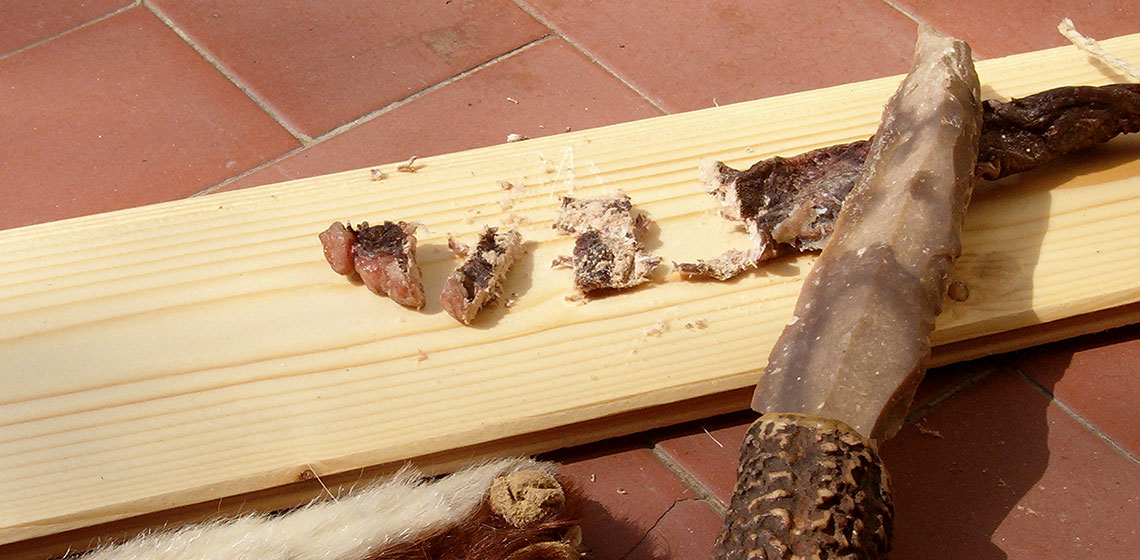nourishment
Drying Meat Today as During the Late Glacial Period
Publication Date
Western Europe during the Upper Palaeolithic, between 42,000 years ago and 12,000 years ago, was sparsely wooded, but later there was an increase in the percentage of specimens of birch, abies, fagus and tilia hosting wildlife similar to that already present during the Middle Palaeolithic. With the recent phase, starting from 24,000 years ago, humans in this territory become specialized...

